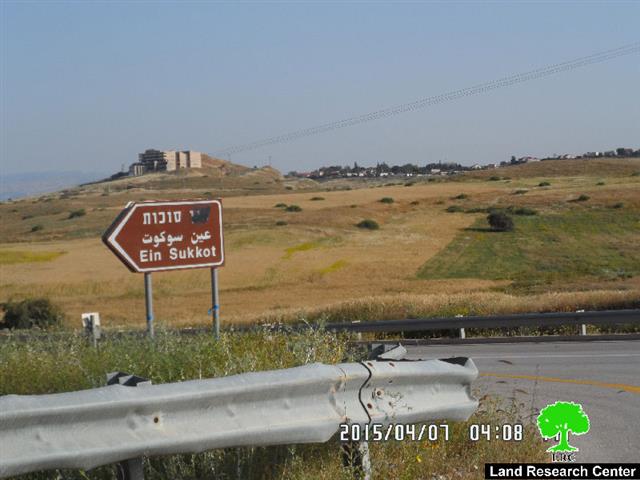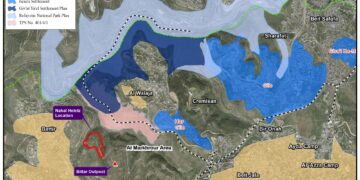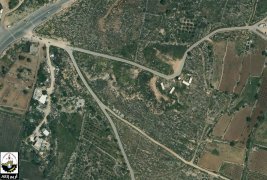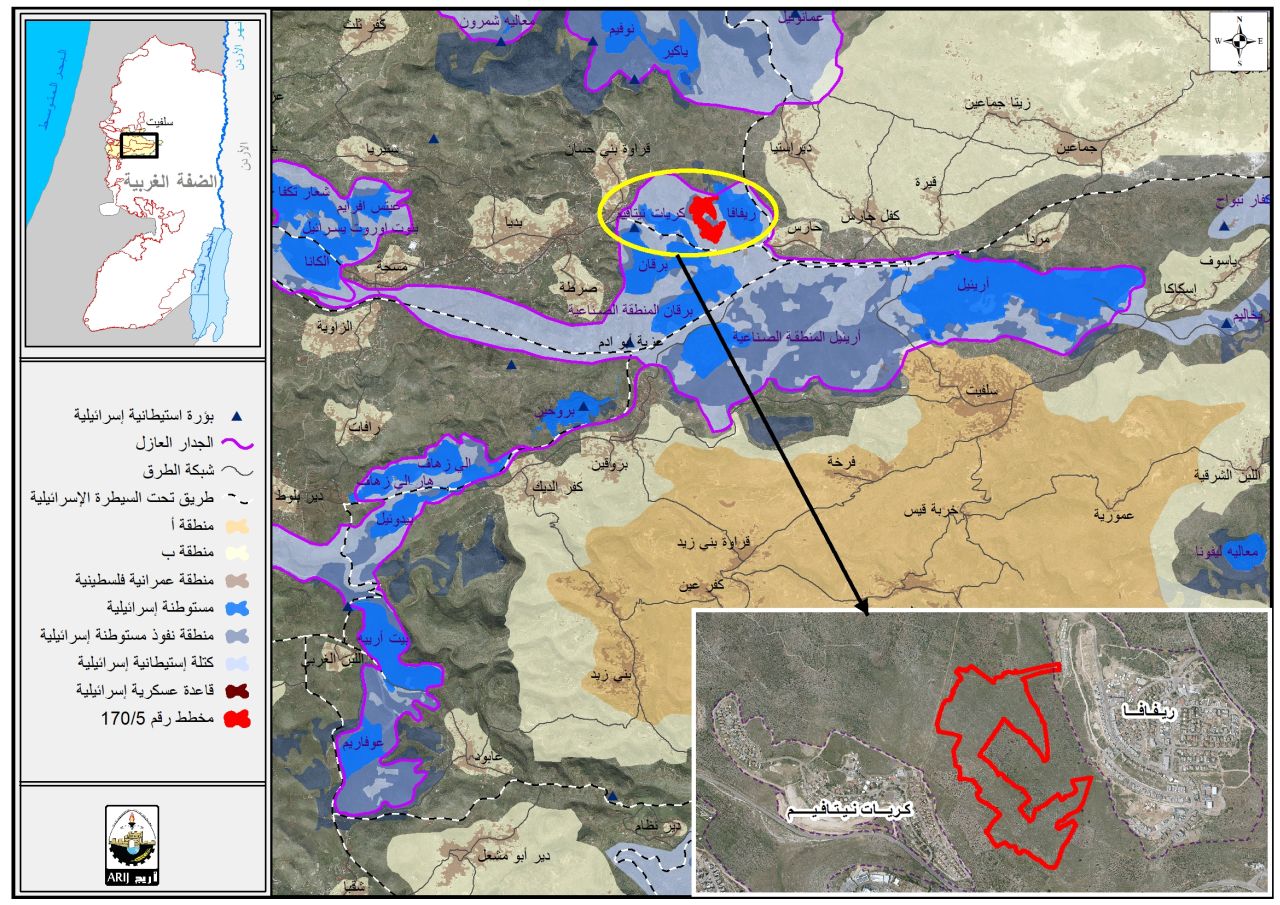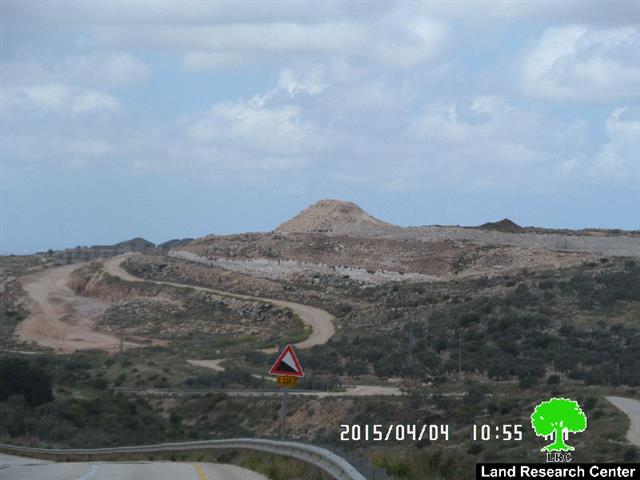Violation: making al-Sakut area a colonial resort
Date: 01/04/2015
Location: northern part of Palestinian Jordan Valley(al-ghoor)
Victims: farmers of northern ghoor
Details:
Khirbet al-Sakut is one of the 32 small villages located alongside the area of the Jordan river; the area was home for agricultural families who lived in there before the year of 1967. Noteworthy, all the aforementioned areas witnessed the so-called Catastrophe in the aftermath of 1967 war, which resulted in declaring the majority of land as "Buffer zone".
150 meters away from the Jordan river and 7km west of Ein al-Bida area, al-Sakut resides there with at least 20 agricultural families inhabiting the area before 1967.
In synchronization with the 1967 war, the occupation demolished the clay houses and pens relative to the inhabitants of the area, displaced them and declared the area a buffer zone with Jordan. As a result, the area was fenced and landmines were planted to draw boarders.
Photos 1-4: a general view of al-Sakut area
After the Peace Treaty held between Jordan and Israel, the occupation dismantled the landmines from the boarders area; the free-from-landmines areas were given to colonist to benefit from. The area of al-Sakut was within the lands given to colonists; al-Sakut was known for its water springs, which are now exploited by colonists as touristic resort named "Ein Sokot". Palestinians are restrictively allowed in the area under intense surveillance.
In 2014, Tubas governorate alongside with hundreds of farmers reached out the taken lands to plant them but the occupation stood up for them and denied them access.
A colonial resort :
It should be marked that after 48 years of the Israeli occupation of the West Bank, it intends to transform the lands of al-Sakut into a resort for the favor of colonists in al-ghoor area at the same time it bans Palestinian framers from reaching their lands.
The legal consultant of Tubas ,about the legality of that Israeli practice, said: " the occupation is still using the military law and confiscating lands for security reasons as means to take over as much area of lands as possible; despite dismantling the landmines from al-Sakut, famers are still denied access to their plots where many colonists are given ultimate rights to those lands".
It is indicated that the Israeli occupation declared thousands of agricultural dunums as closed military orders and colonies peripheries or also known as buffer zones for around 31 colonies in the area, not mentioning the areas planted with landmines. This devastated the Palestinian economy that is supposed to make millions of dollars of revenues.
Prepared by
The Land Research Center
LRC

